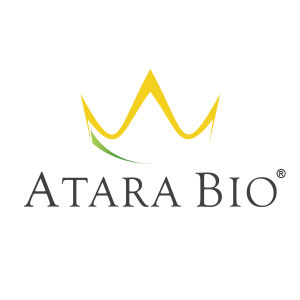预约演示
更新于:2025-05-07
MSLN x PD-1
更新于:2025-05-07
关联
15
项与 MSLN x PD-1 相关的药物作用机制 MSLN抑制剂 [+3] |
在研机构 |
原研机构 |
最高研发阶段临床1/2期 |
首次获批国家/地区- |
首次获批日期1800-01-20 |
作用机制 HPK1抑制剂 [+4] |
在研机构 |
原研机构 |
非在研适应症- |
最高研发阶段临床1期 |
首次获批国家/地区- |
首次获批日期1800-01-20 |
作用机制 MSLN抑制剂 [+3] |
非在研适应症- |
最高研发阶段临床1期 |
首次获批国家/地区- |
首次获批日期1800-01-20 |
25
项与 MSLN x PD-1 相关的临床试验NCT06623396
A Phase I Trial of Intraperitoneal Mesothelin-Targeted CAR T-Cell Therapy in Patients With Mesothelin-Positive Esophagogastric Adenocarcinoma With Peritoneal Carcinomatosis
Participants will have a sample of their white blood cells, called T cells, collected using a procedure called leukapheresis. The collected T cells will be sent to a laboratory at Memorial Sloan Kettering to be changed (modified) to become MSLN-targeted CAR T cells, the CAR T-cell therapy that participants will receive during the study. Participant study therapy will take about 3-4 weeks.
开始日期2024-09-30 |
NCT06327997
Exploratory Study on the Treatment of Advanced Solid Tumor With Non-viral Vector Multi-targeted Autosecretory Multifunctional Antibody CAR-T Cell Injection
The main goal of this trial is to evaluate the safety and tolerability of CAR T cell therapy for advanced solid tumors with positive mesothelin and MUC1.Patients were screened, peripheral blood mononuclear cells (PBMC) were isolated from eligible patients, and cells were prepared. Pretreatment was performed within 5 days before infusion, and CAR T cells were infused on day 0 (the dose was determined according to the requirements of climbing/expansion). The safety intensive observation period was 28 days after infusion, and the clinical efficacy after infusion was evaluated on days 28-34. The follow-up observation and evaluation were carried out according to the follow-up visit point, and the follow-up period was 1 year. From the second year, the telephone follow-up period was entered.
开始日期2024-03-07 |
申办/合作机构 |
ChiCTR2300075473
Clinical study of CAR T cells combined with oncolytic adenovirus injection in the treatment of refractory B cell tumor with recurrent extramedullary mass
开始日期2023-10-01 |
申办/合作机构 |
100 项与 MSLN x PD-1 相关的临床结果
登录后查看更多信息
100 项与 MSLN x PD-1 相关的转化医学
登录后查看更多信息
0 项与 MSLN x PD-1 相关的专利(医药)
登录后查看更多信息
41
项与 MSLN x PD-1 相关的文献(医药)2025-02-01·Journal for ImmunoTherapy of Cancer
Targeting mesothelin-CD24 axis repolarizes tumor-associated macrophages to potentiate PD-1 blockade therapy in high-grade serous ovarian cancer
Article
作者: Liu, Haiou ; Cao, Kankan ; Wang, Xueling ; Lu, Jiaqi ; Xu, Xuyao ; Wang, Yiying ; Zhang, Guodong ; Zhong, Yujing ; Yang, Moran ; Wang, Chenyang
2024-11-01·Clinical and Translational Medicine
Persistence of activated anti‐mesothelin hYP218 chimeric antigen receptor T cells in the tumour is associated with efficacy in gastric and colorectal carcinomas
Article
作者: Mir, Sameer ; Khanal, Manakamana ; Jiang, Qun ; Sengupta, Manjistha ; Zhang, Jingli ; Stathopoulou, Chaido ; Nair, Nishanth Ulhas ; Hassan, Raffit ; Venugopalan, Abhilash
2024-11-01·Molecular Therapy
TALEN-edited allogeneic inducible dual CAR T cells enable effective targeting of solid tumors while mitigating off-tumor toxicity
Article
作者: Poirot, Laurent ; Dharani, Sonal ; Valton, Julien ; Duchateau, Philippe ; Fernandez, Jorge Postigo ; Cho, Hana ; Juillerat, Alexandre ; Das, Shipra
157
项与 MSLN x PD-1 相关的新闻(医药)2025-04-30
《凉凉》I/O渐微凉 项目落地成霜你在市场观望 耗尽所有泪光不彷徨 趁早遗忘新药赛道凉 前世你怎舍下这一红海茫茫 但估值不温不火不上涨想要退场凉凉项目 为你投入成河BD出海 回报着我浅浅Me-too 临床被人抽前期投入 付东流凉凉技术 包装行业特色褪去伪装 伤情着我破山中贼易 破心中贼难折旧的心 还有几分前司的恨 还有几分前司的恨也曾受内伤 也曾因你回光悠悠研发漫长 怎能浪费时光去临床 去换成长灼灼创新忙 如今愈渐滚烫IPO已在弦上 足够三轮融资回报成双再战临床近日,美国旧金山一家新一代抗体偶联药物(ADC)公司Synthetic Design Lab,获得了2000万美元的种子轮融资。而这家公司的创始人及CEO正是肿瘤免疫领域“泰斗级”人物Daniel S. Chen博士。这一消息不禁令人唏嘘,创新药真是十年河东十年河西。 01 十年河东2013 年Daniel Chen与Ira Mellman共同提出了肿瘤免疫循环(Cancer-Immunity Cycle)的概念(图1),这个循环包括七个步骤:1. 癌细胞抗原的释放;2. 癌症抗原的呈递;3. T细胞的启动和激活;4. T细胞向肿瘤的运输;5. T细胞向肿瘤的浸润;6. T细胞对癌细胞的识别;以及7. 癌细胞的杀伤。这7个步骤可分为两个阶段:准备阶段(T细胞应答),主要发生在淋巴结(LNS);效应阶段(T细胞杀伤),主要发生在肿瘤微环境(TME)。在大多数肿瘤中,癌症免疫循环在这些步骤中的一个或多个被阻断,导致抗癌免疫反应受抑和肿瘤免疫逃逸。图1. Cancer-Immunity Cycle示意图当时,Daniel Chen是罗氏制药癌症免疫疗法开发副总裁兼全球负责人,他曾任霍华德·休斯医学研究所(HHMI)研究员,并曾负责斯坦福大学癌症中心转移性黑色素瘤的临床研究。而Ira Mellman是罗氏制药癌症免疫学副总裁、美国国家科学院院士,曾任耶鲁大学免疫学教授(图2)。图2. Daniel Chen(左)与Ira Mellman(右)十年前的2015年,Keytruda及Opdivo刚刚获批上市,而Tecentriq则刚完成临床3期并取得成功,Tecentriq的临床开发就是由Daniel Chen领导的。肿瘤免疫循环这一概念也逐渐被业内接受,甚至被大多数人奉为圭臬,这也奠定了Daniel Chen与Ira Mellman肿瘤免疫“泰斗”的地位。但随着肿瘤免疫热门靶点,如CD47、Tim3、OX40、4-1BB、CD73、TIGIT,接连在临床上折戟,肿瘤免疫也进入了低谷期。特别是曾被业内寄予厚望的TIGIT单抗临床试验(可以从罗氏临床试验命名SKYSCRAPER看出)的失败直接导致了罗氏制药裁撤了其癌症免疫部门(详见TIGIT的至暗时刻;基因泰克肿瘤免疫之殇),Daniel Chen与Ira Mellman也相继离开了罗氏制药。如今,Daniel Chen成了ADC初创公司的CEO,而Ira Mellman于近日加入了美国Parker Institute for Cancer Immunotherapy (PICI)出任研发总裁,这是一家旨在癌症治疗的科学发现与商业化之间架起桥梁,由世界领先的肿瘤免疫学专家组成的协作联盟的非盈利性质的研究所。如果在十年前,Daniel Chen从罗氏出来创业布局肿瘤免疫,融个几亿美元应该不是难事。而如今Daniel Chen创业选择了ADC赛道从一个侧面暗示:1)肿瘤免疫初创企业已经很难融到钱了;2)Daniel Chen对肿瘤免疫失去了信心;3)ADC仍是一级市场的热点。 02 十年河西2011年及2013年有两款ADC获FDA批准上市,分别是来自Seagen的Adcetris(CD30-MMAE)及Immunogen的Kadcyla(Her2-DM1),掀起了一轮ADC研发热潮(图3)。当时,几乎所有的MNC都与Seagen或Immunogen合作开发ADC药物。图3. FDA批准ADC药物时间线但很快大家发现,以微管抑制剂为Payload的ADC治疗实体瘤的失败率很高,事实上当时推上临床的大部分实体瘤ADC都失败了,比如靶向5T4的ADC(PF-06263507)、靶向EphA2的ADC(MEDI-547)、靶向Mesothelin的ADC(BAY94-9343)等等。这让很多药企很快对ADC丧失了信心,包括罗氏在内的众多MNC纷纷放弃了早期ADC管线。2015年9月,DS-8201进入临床1期试验,那时应该很少有人注意到这个分子,但历史的车轮已经开始悄悄转动。2019年12月,DS-8201在美国获批上市,适应症为Her2阳性乳腺癌。而此后,DS-8201更是一路披荆斩棘,不仅在传统适应症上对Kadcyla形成碾压优势,还开辟了乳腺癌Her2低表达甚至超低表达这些亚型的适应症。而那些具有敏锐嗅觉的中国药企在DS-8201获批上市前就已经开始了Fast follow的脚步并一跃成为ADC行业的领导者,如恒瑞、映恩生物、宜联生物、科伦博泰等等,其ADC管线产品已经成功引起MNC的关注并达成多项合作交易。谁能想到,十年前在ADC领域还默默无闻的第一三共通过消化吸收Seagen的技术结合罗氏的Herceptin及自己在TOPO1i方面的技术积累产生了DS-8201而成为了ADC行业的领导者并成功带领行业实现了跨代升级。再次感叹,创新药真是十年河东十年河西。 03 未来十年未来十年是否会出现一个新的Modality成为市场的新宠,答案是肯定的,但只是也许它还没有浮出水面。近日,阿斯利康/第一三共宣布,DS-8201联合帕妥珠单抗,在HER2阳性乳腺癌一线治疗的三期临床试验中,无进展生存期(PFS)显著优于当前一线标准治疗方案(紫杉烷+曲妥珠单抗+帕妥珠单抗,THP),总生存期(OS)也呈现出积极趋势。DS-8201联合帕妥珠单抗有望成为乳腺癌一线治疗,其市场空间也将进一步放大,甚至可能成为首个百亿美元ADC分子。与此同时,吉利德宣布其靶向Trop-2的ADC药物Trodelvy与默沙东PD-1抑制剂Keytruda联合疗法在 3 期临床试验 ASCENT-04/KEYNOTE-D19 中取得积极的顶线结果。分析显示,该试验达到主要终点,Trodelvy联合Keytruda,与Keytruda联合化疗相比,在临床上显著改善不可手术切除的局部晚期或转移性三阴性乳腺癌(mTNBC)且肿瘤表达 PD-L1(CPS≥10)的患者的无进展生存期(PFS)。未来十年,我们将看到越来越多的ADC与抗体(特别是肿瘤免疫抗体)联合治疗实体瘤进入临床试验并取得成功。我们也将看到更多跨Modality的药物联合治疗多种疾病。共建Biomedical创新生态圈!如何加入BiG会员?
临床3期免疫疗法抗体药物偶联物IPO
2025-04-30
·医药速览
T细胞和NK细胞杀伤肿瘤功能不相同,如果把NK细胞的功能添加到T细胞上,或者CART细胞上,能不能让T杀伤癌细胞能力增强呢?3月21日,《Science Immunology》一篇标题为:DNMT1 inhibition reprograms T cells to NK-like cells with potent antitumor activity 的文章,研究了DNMT1(DNA甲基转移酶1)在维持T细胞特性和抑制其向自然杀伤(NK)样细胞转变中的关键作用。通过抑制DNMT1,研究人员成功将T细胞(包括CAR-T细胞)重编程为具有增强抗肿瘤活性的NK样细胞,体外体内杀伤肿瘤能力显著增强。此前研究表明,转录因子BCL11B的失活可以将T细胞重编程为诱导型T到NK细胞(ITNKs),展现出抗肿瘤活性。然而,BCL11B是如何抑制自然杀伤(NK)细胞转录程序的分子机制尚不清楚。蛋白质组学分析发现,BCL11B在T细胞中与DNMT1和UHRF1形成复合物,共同维持DNA甲基化状态。这一表观遗传机制对抑制NK细胞相关基因的表达至关重要。敲除DNMT1或UHRF1会导致T细胞中NK细胞标志物NKp30和NKp46的显著上调,表明UHRF1-DNMT1轴在维持T细胞特性方面的重要作用。使用非核苷类DNMT1选择性抑制剂GSK3484862(GSK862)处理CD4和CD8 T细胞后,这些细胞表现出NK细胞特征,包括NKp30和NKp46的表达上调。类似地,FDA批准的泛DNMT抑制剂地西他滨(DAC)也能在原代人T细胞中诱导NK细胞标志物的表达。这些结果表明,通过化学手段干预DNMT1/UHRF1轴,可以有效模拟BCL11B缺失的效应,为T细胞重编程提供了一种高效且可控的策略。敲除DNMT1或UHRF1以及使用GSK862处理的T细胞在UMAP空间中形成独特的细胞簇,这些细胞表现出NK细胞标志物(如NKp30、NKp46)的上调和T细胞特异性转录因子TCF7的下调,同时还显著增加了杀伤细胞免疫球蛋白样受体(KIRs)家族成员(如KIR3DL1、KIR2DL2/L3/S2、KIR2DS1)和NKp44的表达。此外,DNMT1抑制上调了CD94和NKG2A,但未诱导NK细胞激活受体NKG2C或ADCC相关受体CD16的表达。部分NK细胞相关基因(如SIGLEC7、TYROBP、KIR家族成员)在DNMT1/UHRF1抑制组中显著上调,而在BCL11B缺失组中无明显变化,而另一些基因(如IL18R1、NCAM1、ZNF683)则更倾向于在BCL11B缺失时上调。这些数据表明,抑制维持性DNA甲基化和敲除BCL11B虽然都能诱导T细胞向NK样细胞转化,但两者调控的基因网络存在显著差异,展现了共享和独特的转录特征。抑制DNMT1生成的NK样细胞展现出比BCL11B缺失ITNKs更强的细胞毒性,可能归因于其分泌更高水平的干扰素-γ(IFN-γ)、颗粒酶A/B、颗粒溶素和穿孔素。抗体阻断实验进一步证实,NKp30和NKp46在NK样细胞对K562细胞的杀伤中起关键作用。这些NK样细胞能够通过NCRs和TCRs识别多种癌细胞系,例如有效裂解表达OKT3的NALM6细胞,而对野生型NALM6无显著作用。这表明,DNMT1抑制重编程的NK样细胞兼具天然免疫和适应性免疫的双重识别能力。NK样细胞在体内展现优异抗肿瘤活性,并可通过CAR工程化增强特异性 。在免疫缺陷NSI小鼠模型中评估了NK样细胞对HepG2和K562异种移植瘤的抗肿瘤效果。结果显示,与BCL11B缺失ITNKs相比,由DNMT1抑制或GSK862处理生成的NK样细胞在两种模型中均更显著地抑制肿瘤生长并延长小鼠生存期。肿瘤浸润的NK样细胞高表达活化标志物CD69,而PD1和LAG3的表达水平低于对照组。体外扩增和再刺激后,这些细胞分泌更高水平的颗粒酶B和颗粒溶素。为提高肿瘤识别特异性,研究将抗CD19或抗间皮素(MSLN)CAR转导入GSK862处理的NK样细胞中,结果表明这些CAR-NK样细胞在体内外均展现出优于传统CAR-T细胞的抗肿瘤活性。这些数据证明,DNMT1抑制重编程的NK样细胞不仅具备强效抗肿瘤能力,还可通过CAR工程化实现靶向治疗,进一步增强其临床应用潜力。DNMT1的非酶功能通过稳定BCL11B抑制T细胞向NK样细胞重编程 。研究发现,DNMT1与BCL11B相互作用,并通过其非酶功能维持BCL11B的蛋白稳定性,从而支持T细胞特性。DNMT1-BCL11B相互作用在抑制T细胞向NK样细胞重编程中的关键作用 。GSK862处理显著上调CD4和CD8 T细胞中NKp30和NKp46的表达,但外源性过表达BCL11B能够部分逆转这一效应。这表明,DNMT1通过与BCL11B的物理相互作用维持其稳定性,从而抑制T细胞向NK样细胞的转化。进一步发现,抑制DNMT1和EZH2可协同重编程T细胞,增强NK样细胞的生成和抗肿瘤活性。DNA甲基化和H3K27me3共同抑制NK细胞相关基因的表达,而联合使用DNMT1抑制剂(如GSK862)和EZH2抑制剂(如EPZ6438)可显著解除这种抑制,促进NK细胞特异性基因的表达和染色质开放性。这种协同作用通过激活NK细胞相关信号通路(如细胞毒性因子和免疫调控基因)实现,从而提升T细胞向NK样细胞的转化效率及其抗肿瘤功能。这些结果表明,DNA甲基化和H3K27me3是防止T细胞转变为NK样细胞的双重保障机制。最后,这项研究揭示了DNMT1在维持T细胞特性和抑制NK细胞程序中的关键分子机制,并提出了通过使用表观遗传抑制剂(特别是DNMT1抑制剂,以及与EZH2抑制剂联合使用)将T细胞转化为具有增强抗肿瘤活性的NK样细胞的新策略,为癌症免疫治疗提供了新的思路和潜在的细胞来源。参考资料:Yao Li et al. ,DNMT1 inhibition reprograms T cells to NK-like cells with potent antitumor activity.Sci. Immunol.10,eadm8251(2025).DOI:10.1126/sciimmunol.adm8251推文用于传递知识,如因版权等有疑问,请于本文刊发30日内联系医药速览。原创内容未经授权,禁止转载至其他平台。有问题可发邮件至yong_wang@pku.edu.cn获取更多信息。©2021 医药速览 保留所有权利往期链接“小小疫苗”养成记 | 医药公司管线盘点 人人学懂免疫学| 人人学懂免疫学(语音版)综述文章解读 | 文献略读 | 医学科普|医药前沿笔记PROTAC技术| 抗体药物| 抗体药物偶联-ADC核酸疫苗 | CAR技术| 化学生物学温馨提示医药速览公众号目前已经有近12个交流群(好学,有趣且奔波于医药圈人才聚集于此)。进群加作者微信(yiyaoxueshu666)或者扫描公众号二维码添加作者,备注“姓名/昵称-企业/高校-具体研究领域/专业”,此群仅为科研交流群,非诚勿扰。简单操作即可星标⭐️医药速览,第一时间收到我们的推送①点击标题下方“医药速览” ②至右上角“...” ③点击“设为星标
细胞疗法免疫疗法临床研究
2025-04-29
·氨基观察
作者 | 独钓寒江在质疑声中负重前行,荣昌生物,果然是好样的!4月28日,荣昌生物公布的一季度财报,呈现出多组对比鲜明的“一升一降”数据,传递出其穿越市场周期的底气——营业收入延续了高速增长态势:一季度实现营业收入5.3亿元,同比增长59.17%,环比增长3.54%,成绩十分亮眼,然而更令人惊艳的是,一季度销售费用率持续下降至47.66%,同比下降了9个百分点,降本增效能力显著增强;再看一下毛利率,一季度毛利率为83.26%,同比提高了5.8个百分点,生产成本进一步得到了有效控制。亏损情况得到有效扭转,在研发费用投入同比持平的情况下,一季度同比减亏近1亿元,亏损幅度降低了27.2%。综合来看,荣昌生物降本增效的各项措施效果凸显,一切向好的盈利能力、财务状况和运营效率,让市场吃下了一颗“定心丸”,广大投资者也将真金白银投给了荣昌生物:今年以来,荣昌生物A股涨幅近70%,H股涨幅超150%。负重前行,拨云见日,荣昌生物这颗“定心丸”实属来之不易,我们来一起探寻这份激增59%季报背后的战略韧性。/ 01 /双重信号:营收高增长和亏损持续收窄荣昌生物的商业化能力,其实一直都是在线的。两款核心产品泰它西普和维迪西妥单抗分别于2021年3月和9月上市,当年实现销售收入1.3亿元,在进入医保目录后的2022年迅速放量至7.7亿元。2023年和2024年,分别以10.82亿元和17.17亿元的营收,40.26%和58.54%的增幅,展现出荣昌生物在商业化方面的澎湃动能。2025年一季度,荣昌生物再一次用59.17%的强劲营收增长,彰显了它日臻成熟的商业化能力。然而,这次不是简单的保持了高速增长的态势,叠加一季度销售费用率降至47.66%这一有力数据,我们不难看出,这不仅是对2024年全年营收大增58.5%的有效确认,而且对于处于商业化快速上升阶段的荣昌生物来说,更具有深层次的标杆意义。这组数据至少说明了三点,一是荣昌生物已上市的两款核心产品泰它西普和维迪西妥单抗销售持续增长,已成功穿越市场导入期,其临床价值和市场潜力逐步得到释放,目前两款药物的准入医院均超过1000家,随着其他新适应症的获批上市,市场前景广阔;二是荣昌生物实现59.17%的营收高增长的同时,销售费用率大幅下降,且销售费用仅增长了33%,也就是说荣昌生物的高速增长不是以高投入为代价的,自免、肿瘤两支专业化营销团队已具备了将产品力高效转化为商业价值的市场驾驭能力,这一点尤为重要。三是,在2024年业绩说明会上,公司管理层就曾透露2025年销售费用率有望控制在50%以内,而一季度的数据的率先打样,验证了管理层的预判的科学性和精准性。荣昌生物一季报的另一个亮点,是亏损的进一步收窄。财报数据显示,在研发投入3.3亿元同比持平的情况下,一季度亏损2.5亿元,同比减少约1亿元,亏损幅度降低了27.2%,环比减少1.4亿元,亏损幅度降低了36%。大幅扭亏的背后,毛利率的提升也是重要因素。荣昌生物一季度毛利率达到83.3%,同比提升了5.8个百分点,集中反映了公司在生产和运营方面的改进和提升,这主要得益于生产工艺的持续优化,商业化生产的规模效应,以及精益生产各项措施的快速落地,综合生产成本进一步降低,仅同比增长18%。营收高增长和亏损持续收窄,彰显了荣昌生物澎湃的商业化动能和运营效率的提升,也让荣昌生物的自我造血能力不断得到增强,未来实现盈亏平衡自然也水到渠成了。所以说,“基本盘稳固”是荣昌生物穿越周期的最大底气。/ 02 /双向奔赴:商业化突破与适应症拓展商业化能力是考验创新药企的终极指标之一,而与之密切相关的是适应症的差异化竞争优势。泰它西普的市场表现,就是典型例证。2021年3月,泰它西普横空出世,就以82.6%的有效率在系统性红斑狼疮适应症领域展现出压倒性竞争优势,此后类风湿关节炎适应症获批,给广大患者带来了福音。凭借着这两个适应症,泰它西普创造出了不俗的业绩,2024年销量超过150万支,较上年增长94.87%。作为一款全球首创双靶点治疗B细胞介导一系列自免疾病的“广谱性”大药,泰它西普还有重症肌无力(MG)、IgA肾病(IgAN)、干燥综合征(pSS)等多个适应症在国内、国际布局了多项Ⅲ期临床研究。4月9日,泰它西普重症肌无力适应症(MG)Ⅲ期临床试验数据在美国神经病学年会(AAN)上以“最新突破性研究”口头报告惊艳亮相。数据显示,泰它西普治疗24周后,98.1%的患者重症肌无力日常活动评分(MG-ADL)改善≥3分,87%的患者定量重症肌无力评分(QMG)改善≥5分,具有显著的临床意义。在已完成全身型重症肌无力Ⅲ期临床研究的药物中,泰它西普的MG-ADL应答率数据最高,有望改写该疾病领域的全球治疗格局。消息甫一传出,立刻引燃了市场的情绪,当日荣昌生物股价大涨。根据CDE官网公开的审评审批进度,预计重症肌无力将于二季度获批上市,毫无疑问,这将是泰它西普又一个大放异彩的适应症。与此同时,泰它西普IgA肾病、干燥综合征两个适应症预计下半年均可递交上市申请。这是一片蕴含着巨大市场潜力的“蓝海”,国内分别有超过230万名和65万名患者缺乏有效的生物制剂治疗手段,存在巨大的未被满足的临床需求,尤其是在干燥综合征适应症方面,全球尚未有生物制剂获批,而泰它西普的临床进度位居前列。泰它西普的风头正劲,似乎掩盖了荣昌生物另外一款核心产品的光环,但维迪西妥单抗作为我国首个获批上市的抗体偶联(ADC)药物,实力不容小觑。维迪西妥单抗从未停止对已获批上市的胃癌、尿路上皮癌两个适应症的探索。刚刚公布的更新的2025年版CSCO胃癌指南显示,HER2 ADC用于三线及以上的治疗,DS-8201仅推荐用于HER2高表达,维迪西妥单抗已经推荐用于HER2高中表达的治疗。4月16日,药物临床试验登记与信息公示平台官网显示,荣昌生物登记了一项Ⅲ期研究,联合PD1+化疗一线治疗HER2低表达胃癌。根据Insight数据库,全球尚无药物获批治疗HER2低表达胃癌,维迪西妥单抗在该适应症赛道进度属于第一梯队。在胃癌患者中,HER2高表达约占12%-23%,如果加上HER2中低表达,大约有40%-45%为HER2表达的胃癌。维迪西妥单抗的胃癌适应症临床研究已经实现了HER2高中低表达的全覆盖,将为接近一半的胃癌患者带来福音。将于5月30日至6月3日举行的美国临床肿瘤学会2025年年会(ASCO 2025)上,维迪西妥单抗联合特瑞普利单抗及化疗/曲妥珠单抗一线治疗HER2表达局部晚期或转移性胃癌的临床研究入选口头报告,届时也将带给我们别样的精彩。维迪西妥单抗在尿路上皮癌适应症领域,更是大放异彩。我们来看今年以来发布的三项研究成果:1月8日,维迪西妥单抗联合特瑞普利单抗治疗局部晚期或转移性尿路上皮癌一项研究结果发表于国际肿瘤学顶级期刊《肿瘤学年鉴》。数据显示,客观缓解率(ORR)达73.2%,中位总生存期(OS)达33.1个月,这是迄今为止晚期尿路上皮ADC联合PD-1治疗前瞻性临床研究报道数据中的最高ORR和最长OS数据。2月13日,2025年美国临床肿瘤学会泌尿生殖系统肿瘤研讨会(ASCO GU)上,维迪西妥单抗联合PD-1新辅助治疗HER2表达的肌层浸润性膀胱癌(MIBC)研究结果,以口头报告的形式亮相。这是全球范围内首个公布结果的ADC联合免疫在MIBC新辅助治疗领域的前瞻性临床研究,其病理完全缓解率(pCR)达63.6%,较传统新辅助化疗pCR率(36%-42%)有突破性提升。3月19日,维迪西妥单抗单药治疗后线HER2阴性(IHC0)及HER2低表达(IHC 1+)局部晚期或转移性尿路上皮癌I期研究结果,发表于国际医学旗舰期刊Med杂志。这是迄今为止,全球首个证实在HER2低表达尿路上皮癌患者中展现振奋疗效的HER2 ADC研究,结果显示,所有患者和HER2低表达(IHC 1+)患者的客观缓解率(ORR)分别为31.6%和46.2%,且总体耐受性良好。维迪西妥单抗在尿路上皮癌领域的独特优势已然“明牌”,我们期待进入联合治疗治疗一线尿路上皮癌进入商业化后的出色表现。确定性最强,离商业化兑现最近的,当属维迪西妥单抗HER2阳性乳腺癌伴肝转移适应症。在去年12月举办的第47届圣安东尼奥乳腺癌研讨会(SABCS)上,首次对外公布了维迪西妥单抗治疗HER2阳性存在肝转移的晚期乳腺癌患者Ⅲ期临床研究数据,维迪西妥单抗显著延长了患者的无进展生存期(PFS),疾病进展或死亡风险降低了44%。中位PFS与对照组相比实现了翻倍(9.9vs4.9个月)。该适应症上市申请已于去年10月获得国家药品监督管理局药品审评中心(CDE)受理,并基于此前的突破性疗法认定,被纳入优先审评审批程序,预计将于今年二季度获批上市。无论是泰它西普,还是维迪西妥单抗,这两款创新药的适应症拓展和商业化突围,始终是相匹配的,临床研究精准对接尚未被满足的临床需求,都有多项临床研究临近商业化兑现,而商业化则厚积薄发、动能澎湃,这种商业化突围和适应症精准拓展的双向奔赴,无疑极大提升了荣昌生物的运行效率。/ 03 /双轮驱动:深耕赛道与平台迭代升级深耕自身免疫、肿瘤、眼科等重大疾病领域的荣昌生物,管线丰富而厚重。除泰它西普和维迪西妥单抗以外,荣昌生物的第三款核心产品RC28作为全球首创VEGF/FGF双靶点治疗眼科疾病的融合蛋白药物,相比于单靶VEGF抑制剂,RC28独特的结构设计展现出优异的临床疗效,而且RC28的人源化设计,可以有效延长其半衰期、减少给药频率、减轻患者不适。RC28的糖尿病黄斑水肿(DME)适应症,将在5月7日举行的美国眼科与视觉研究协会(ARVO)上,以口头报告的形式公布DME适应症的Ⅱ期临床试验结果,这无疑将是有一个重磅的研究结果。而据公开的信息,RC28预计将在今年下半年递交上市申请,市场也将对荣昌生物第三款进入商业化的重磅药物满怀期待。荣昌生物管线中,还有RC88、RC148等具备重磅药物潜力的新分子处于Ⅱ期临床试验阶段。其中RC88是荣昌生物自主研发的新型间皮素(MSLN)靶向ADC药物,在2024ASCO大会上公布的研究结果显示, RC88在显著改善MSLN表达的晚期实体瘤患者预后方面的具备巨大潜力。RC148是荣昌生物首款双抗融合蛋白药物,靶点PD-1/VEGF,正在开展联合化疗治疗晚期肺癌的Ⅱ期临床研究以及联合ADC治疗多瘤种的Ⅰ/Ⅱ期临床研究,以观察到良好的疗效及安全性。基于荣昌生物研发团队的眼光和营销团队的出色的商业化能力,我们完全有理由相信,RC28、RC88、RC148,都有望复制泰它西普、维迪西妥单抗的发展轨迹,成为各自领域的重磅药物。荣昌生物的平台迭代也在悄然进行。在2025摩根大通医疗健康年会(JPM)上,公司CEO房健民博士透露,采用新一代偶联技术及毒素的ADC药物分子RC278,将于今年二季度申报IND,尽管目前靶点尚未公布,但能让这位“大咖”科学家高度重视的新分子,自然也将给大家带来巨大的惊喜,让我们拭目以待。相比于深耕赛道,这种平台化创新,更能让人看到创新药企的光明未来。资本市场是敏感的。据香港联交所资料显示,4月16日,Allianz SE增持荣昌生物(09995)257.55万股,每股作价33.9181港元,总金额约为8735.61万港元。增持后最新持股数目约为1106.05万股,最新持股比例为5.83%。此举引来了众多股民的密切关注和深入研究。/ 04 /结语:迈向可持续盈利从财务数据到产品管线,从运营效率到市场信心,荣昌生物2025年首季“开门红”不仅是2024年业绩激增的延续,更是印证了其“降本增效”战略的成功,凸显了创新管线密集兑现带来的增长动能,在一定意义上是其创新战略厚积薄发的缩影。在生物医药行业竞争加剧的背景下,公司以显著的差异化竞争优势、扎实的临床数据与高效的商业化能力,正加速从Biotech向Biopharma蜕变,前景广阔,未来可期。PS:欢迎扫描下方二维码,添加氨基君微信号交流。
财报
分析
对领域进行一次全面的分析。
登录
或

Eureka LS:
全新生物医药AI Agent 覆盖科研全链路,让突破性发现快人一步
立即开始免费试用!
智慧芽新药情报库是智慧芽专为生命科学人士构建的基于AI的创新药情报平台,助您全方位提升您的研发与决策效率。
立即开始数据试用!
智慧芽新药库数据也通过智慧芽数据服务平台,以API或者数据包形式对外开放,助您更加充分利用智慧芽新药情报信息。
生物序列数据库
生物药研发创新
免费使用
化学结构数据库
小分子化药研发创新
免费使用



